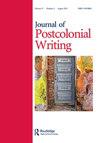“梦想远离我们的荒野”:资本主义,殖民主义,和罗宾逊纳德
IF 0.4
3区 文学
0 LITERATURE
引用次数: 1
摘要
丹尼尔·笛福的小说《鲁滨逊漂流记》具有标志性的地位,不仅因为它是一部文学作品,而且因为它在经济和社会理论方面的影响。本文通过运用查尔斯·米尔斯关于无知认识论的概念和洛伦佐·维拉西尼关于移民殖民社会心理防御机制的研究来反思这种影响。这一理论框架促使我们对《鲁滨逊漂流记》进行深入的文本分析,重点关注四种文本策略:佐立和星期五的配对对比,将奴役视为一种牺牲行为;“世界政治”理想的战略运用作为合法权力基础的臣服理论;道德相对主义使克鲁索盗窃土著土地的行为合理化。然后,这种分析为马克思的《资本论》作为一个批判地倒置的罗宾森纳德的原始解释提供了基础:一个旨在证明殖民征用的全球关系如何产生一个熔炉,在这个熔炉中,一个特定的自主个性的想象被锻造出来。本文章由计算机程序翻译,如有差异,请以英文原文为准。
“To dream of a wildness distant from ourselves”: Capitalism, colonialism, and the Robinsonade
Daniel Defoe’s novel Robinson Crusoe holds an iconic position, not solely as a work of literature, but also for its influence in economic and social theory. This article reflects on this influence by mobilizing Charles Mills’s concept of epistemologies of ignorance and Lorenzo Veracini’s work on psychological defence mechanisms in settler colonial societies. This theoretical framework motivates a close textual analysis of Robinson Crusoe that focuses particularly on four textual strategies: paired contrasts between Xury and Friday that frame enslavement as a sacrificial act; strategic use of “cosmo-politan” ideals; a theory of subjection as the foundation for legitimate power; and moral relativisms that rationalize Crusoe’s theft of Indigenous land. This analysis then provides the foundation for an original interpretation of Marx’s Capital as a critically inverted Robinsonade: one designed to demonstrate how global relations of colonial expropriation generate a crucible in which a particular imaginary of autonomous individuality is forged.
求助全文
通过发布文献求助,成功后即可免费获取论文全文。
去求助
来源期刊

Journal of Postcolonial Writing
LITERATURE-
CiteScore
0.80
自引率
0.00%
发文量
73
期刊介绍:
The Journal of Postcolonial Writing is an academic journal devoted to the study of literary and cultural texts produced in various postcolonial locations around the world. It explores the interface between postcolonial writing, postcolonial and related critical theories, and the economic, political and cultural forces that shape contemporary global developments. In addition to criticism focused on literary fiction, drama and poetry, we publish theoretically-informed articles on a variety of genres and media, including film, performance and other cultural practices, which address issues of relevance to postcolonial studies. In particular we seek to promote diasporic voices, as well as creative and critical texts from various national or global margins.
 求助内容:
求助内容: 应助结果提醒方式:
应助结果提醒方式:


